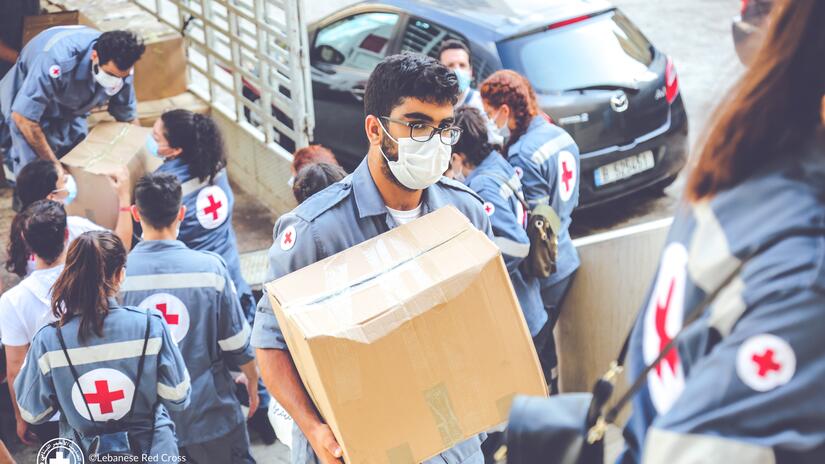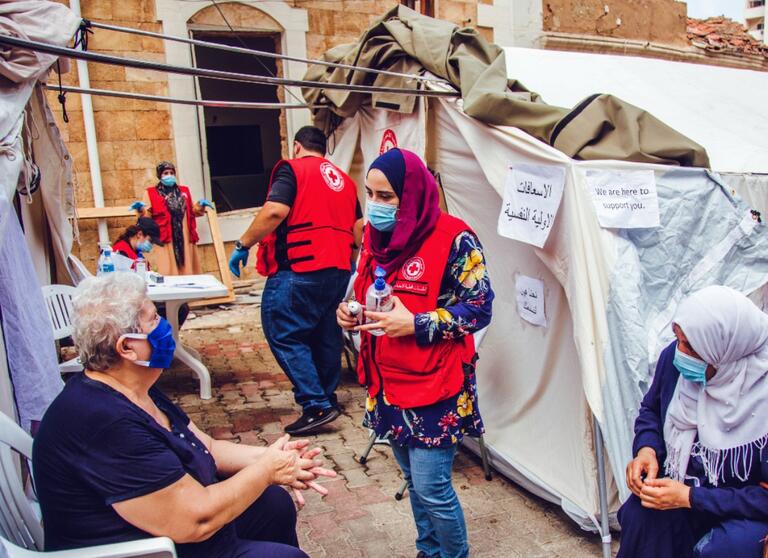Beirut, 4 September 2020: One month after the devastating port explosions in Beirut, the humanitarian needs of the survivors remain unmet and are growing every day.
The horrific disaster on 4 August killed at least 190 people, injured some 6,500 others, and left 300,000 homeless. The volunteers and staff of the Lebanese Red Cross are supporting more than 106,000 of the most vulnerable survivors with ambulance and medical services, psycho-social support, and assessing their short-term and long-term needs.
More than 6,000 households have been assessed to date, and the overwhelming majority – 96 per cent - need assistance with shelters, home repairs, medical care, medications especially for chronic diseases, cash and food assistance. Because of banking restrictions since October 2019, only 13 per cent reported having savings that they could access.
Mr. George Kettaneh, Secretary General of the Lebanese Red Cross, said: “In the very near future, the Lebanese Red Cross will start to distribute direct cash support for at least 10,000 families. We will spend 5 million US dollars every month on direct cash distribution to enable people having some level of dignity in buying their own food and fulfilling their own needs.
“In view of the impact and severity of this disaster, many people will depend on national and international donor support for a long time before they can rebuild their lives and their livelihoods.”
The assessments indicate that more than over half of the survivors assessed (57 per cent) have a family member living with a chronic illness that requires medication, 8 per cent are living with a disability, and 5 per cent are pregnant and lactating mothers.
There have been serious psychological and mental health impact on the general population, including staff and volunteers of Lebanese Red Cross. While the long-term effects are yet to be assessed, the Lebanese Red Cross is providing psycho-social support in three locations near the blast area. Its volunteers and staff are also working to maintain regular services such as emergency medical services and blood transfusion.
Dr. Hossam Elsharkawi, Middle East North Africa Regional Director at the International Federation of Red Cross and Red Crescent Societies (IFRC), said: “The explosion is no longer in the headlines, but it is still affecting the lives of hundreds of thousands of people who desperately need shelter repairs, medical care, medications, cash, and food. The Lebanese Red Cross are doing everything they can, but they need our and donors support to do more.”
The Lebanese Red Cross launched an appeal for 19 million USD to continue providing emergency medical services and relief operations during the first three months.
IFRC, in support of LRC plan, has appealed for 20 million Swiss francs (21.8 million US dollars) to scale up health, shelter and livelihood support over the coming 24 months. Donate here: https://supportlrc.app/.
Media contacts:
In Beirut: Rana Sidani Cassou, +96171802779 [email protected]

37,000,000
CHF Needed to help most vulnerable

10,639,810
CHF currently funded



